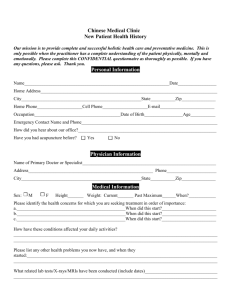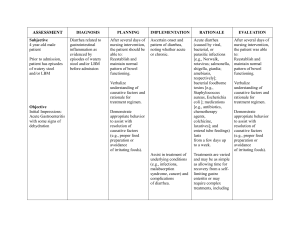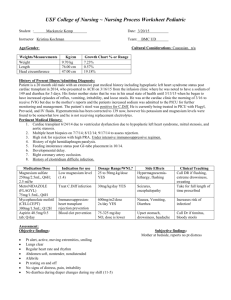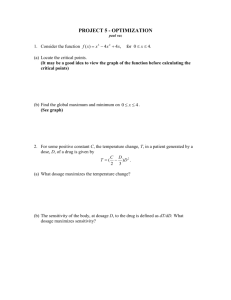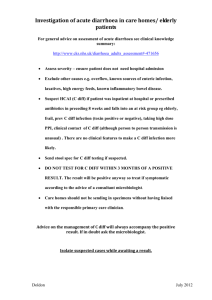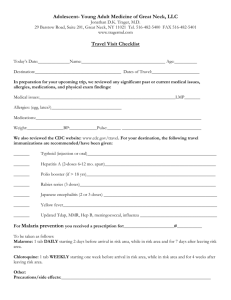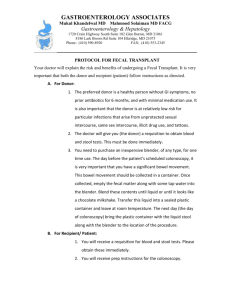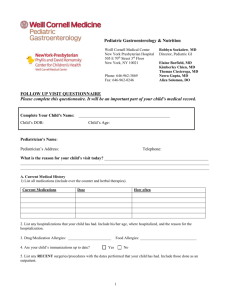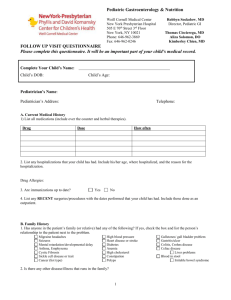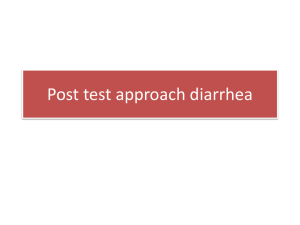The human fecal transplant
advertisement
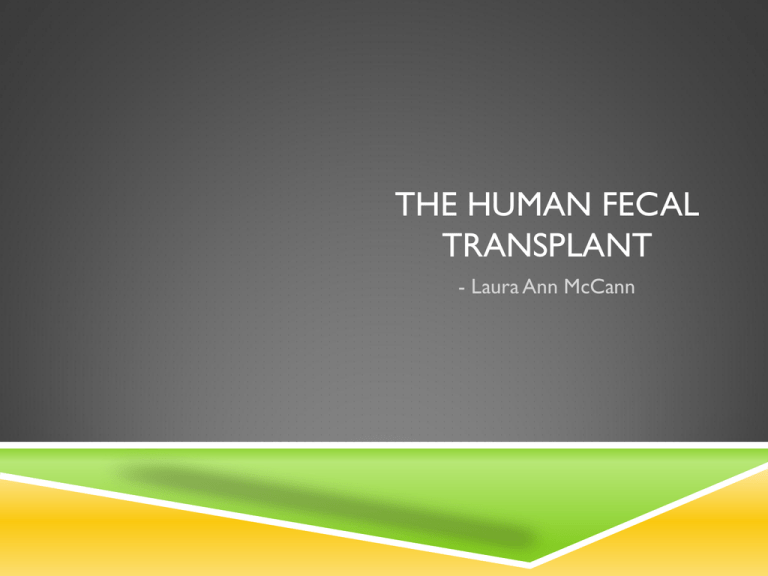
THE HUMAN FECAL TRANSPLANT - Laura Ann McCann Clostridium difficile Also known as C. diff Mild to moderate symptoms: watery diarrhea, abdominal pain and cramping Severe symptoms: colitis, watery diarrhea from 10-15 times per day, fever, nausea Transmission: fecal-oral and while taking certain antibiotics Produces spores that can survive in a room for weeks to months Treatment: Flagyl or vancomycin and surgery for severe cases Causes approximately 14,000 deaths annually HUMAN FECAL TRANSPLANT Donated stool from a healthy person is transplanted into a patient infected with the C. diff bacterium The patient that receives the stool has not been responding to the traditional antibiotics Administration: nasogastric tube or implantation during a colonoscopy Most symptoms are relieved within 24 hours The donated stool helps regenerate and re-establish the regular intestinal flora in the patient’s gastrointestinal tract STUDY PRESENTED AT THE ANNUAL INFECTIOUS DISEASE SOCIETY OF AMERICA MEETING IN SAN DIEGO 49 patients that were not responding to antibiotics were treated 43 recovered completely and did not have any side effects or recurrence 3 months later 4 died from causes not related to C. diff or treatment One showed no improvement http://www.medicalnewstoday.com/articles/251759.php http://news.yahoo.com/poop-transplants-may-combat-bacterialinfections-130609662.html
